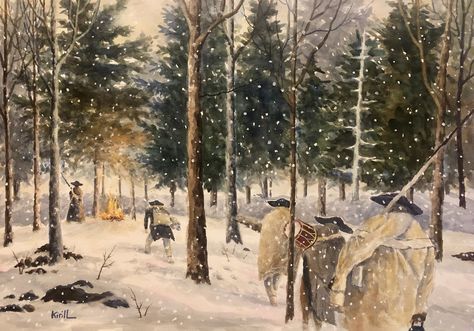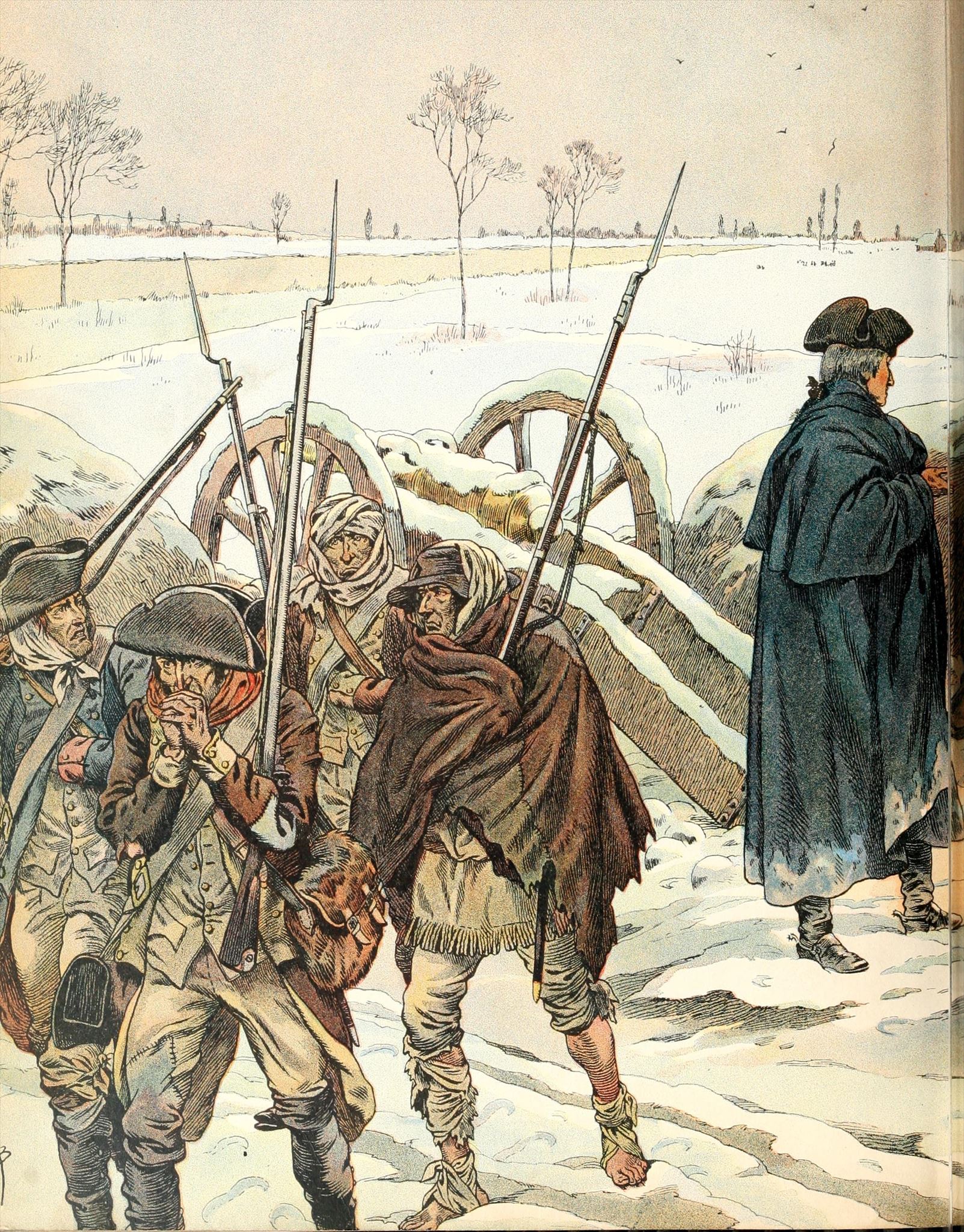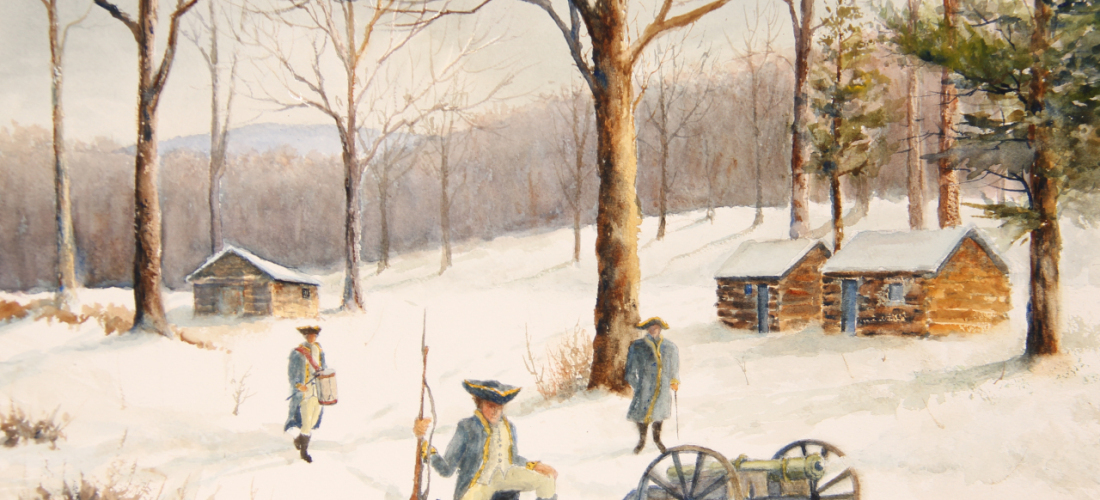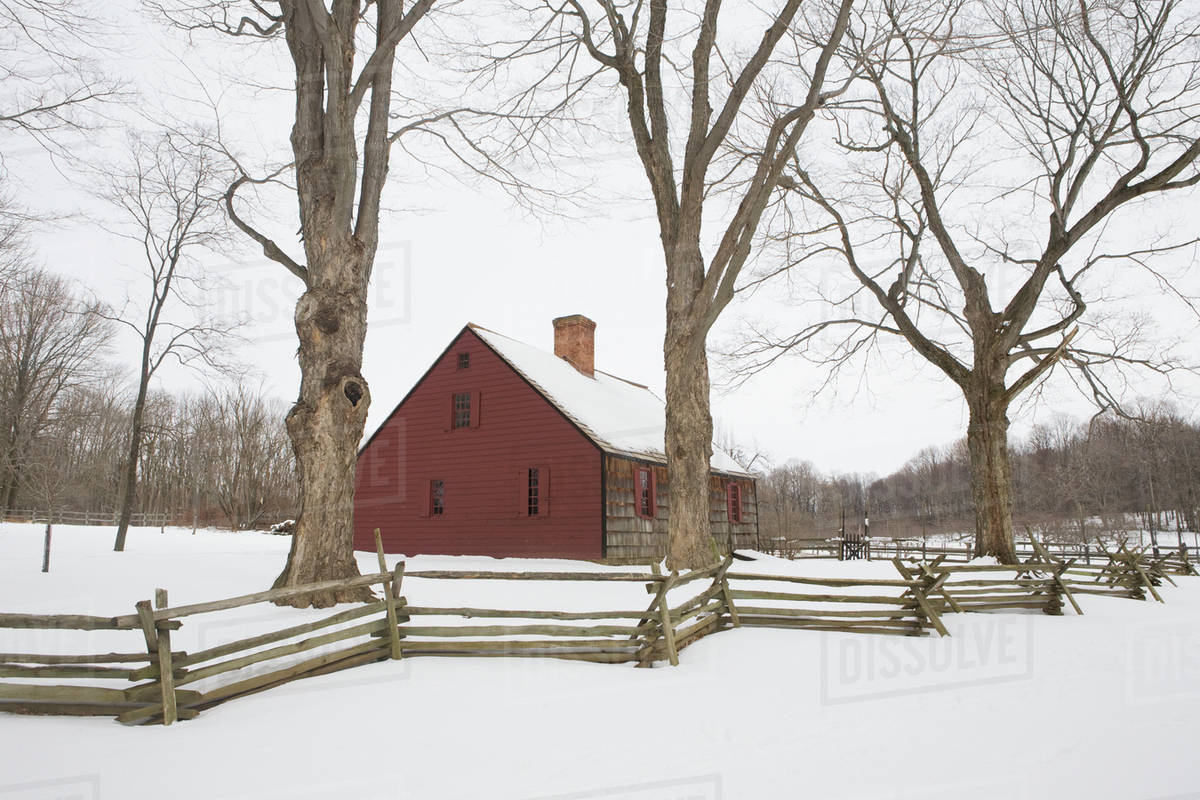Jockey Hollow becomes an important encampment of the Revolutionary War.
During the Revolutionary War, Henry Wick owned Jockey Hollow, which by then consisted of 1400 acres of timber and open field. He was also the Captain of the Morris County Cavalry, whose duty it was to protect Governor Livingston, the Privy Council, and the New Jersey government. For this reason, the Wick family was considered the ideal family to house the Army. The Wick estate was considered the ideal location, because the elevation of Jockey Hollow was several hundred feet above the British to the east. The mountainous range also allowed soldiers to detect British movement. During the winter of 1779-1780, nearly 600 acres of timber on Jockey Hollow were cut down by the soldiers to be used for the construction of huts and as firewood.

Strategically, the Wick family were considered by the officers of the Continental Army to be one of the most reliable and patriotic families in America, so the Army never had any trouble quartering there, nor did the Wick family ever require compensation for the use of their land, which was especially important to Congress. The Continental Army had wintered there in 1776-77 following Washington's Crossing of the Delaware and the subsequent American victories at Trenton and Princeton. One fourth of the Army died from smallpox or dysentery. During that Winter, the Wicks hosted Captain Joseph Bloomfield.
Jockey Hollow had hosted prominent officers before the winter of 1779-1780. Alexander Hamilton was likely quartered at the Wick House at least once during the War. The Wicks would use one side of the house, and gave the other to the officers who were quartered with them, and the Wicks would share the kitchen and dining room with the officers.
During the Winter of 1779-1780, the Wicks housed General Arthur St. Clair, who was then commander of the Pennsylvania Line, and several of his aides. On October 17, 1779, the entire Continental Army, consisting of 13,000 men, encamped for the winter at Jockey Hollow. Soldiers camped at this location until June 1780, during which time they endured some of the harshest conditions of the war. In the days of horsepower, this was considered an impregnable redoubt. Another reason why the location was chosen was because the surrounding area held citizens, like the Wick family, who were the strongest patriots in the region and the most sympathetic to the rebel cause.

Soldiers build a “log house city” Eleven brigades--the ―Main Army under General Washington numbering approximately 10,000 men-- encamp in and south of Morristown, building approximately 1,200 log huts.
First Maryland Brigade Second Maryland Brigade First Connecticut Brigade Second Connecticut Brigade New York Brigade Hand’s Brigade made up of the 1st 3rd 5th and 7th Maryland Regiments made up of the 2nd 4th 6th and Hall’s Delaware Regiments made up of the 3rd 4th 6th and 8th Connecticut Regiments made up of the 1st 2nd 5th and 7th Connecticut Regiments made up of the 2nd 3rd 4th and 5th New York Regiments made up of the 1st and 2nd Canadian Regiments and the 4th and 11th Pennsylvania Regiment

First Pennsylvania Brigade Second Pennsylvania Brigade Stark’s Brigade New Jersey Brigade (huts south of Jockey Hollow) made up of the 1st 2nd 7th and 10th Pennsylvania Regiments made up of the 3rd 5th 6th and 9th Pennsylvania Regiments made up of the 2nd Rhode Island Regiment, Sherburne’s Connecticut Regiment., Webb’s Connecticut Regiment and Jackson’s Massachusetts Regiment. made up of the 1st 2nd & 3rd New Jersey Regiments and Spencer’s Regiment Artillery Brigade.

Around Morristown, 1st 2nd 3rd and 4th Continental Artillery The army rents space for generals and staffs in local homes: the soldiers and field officers live in log huts. General Arthur St. Clair (commanding the Pennsylvania brigades) and staff live with the Wick family in their farmhouse Nine of the brigades live south of town in an area called ―Jockey Hollow. Around 2,000 acres of trees are cut down by the troops to build log huts for shelter, and fuel for fires.
 Morristown National Park Link
Morristown National Park Link
This geocache is approved by Morristown National Historical Park, Morristown NJ. Meeting historic and educational guidelines providing information about the American Revolution.
These educational "Jockey Hollow's Morristown National Park geocaches" are in conjunction with the upcoming "New Jersey American Revolution Geo~Trail" which will be located throughout New Jersey. The Geo trail geocaches are hidden at historic locations which have a connection to important New Jersey's American Revolutionary War history.
 ”njpatriots"
”njpatriots"
The Northern New Jersey Cachers, NNJC is about promoting a quality caching experience in Northern New Jersey. For information on The Northern New Jersey Cachers group you can visit: www.nnjc.org.
 nnjc.org & metrogathering.org, & njpatriots.com
nnjc.org & metrogathering.org, & njpatriots.com